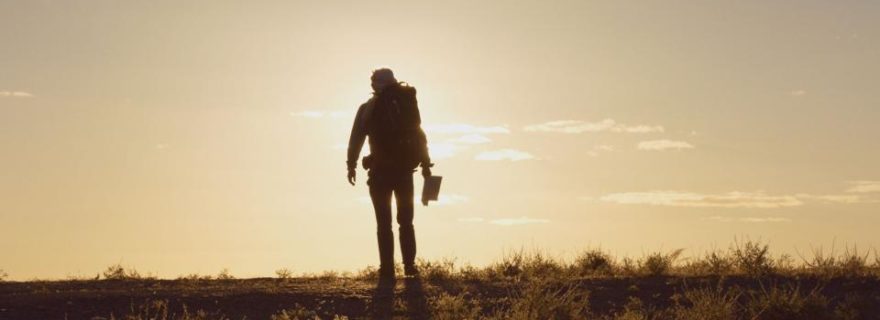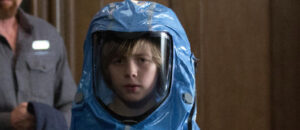The end begins with a thoughtful gift.
Along with the canned goods and the like that Andy (Martin Freeman) had scavenged from the rotting corpse of a boat, he stumbled upon a bottle of red. He even penned a lovely note for his wife to discover with her present. Kay (Susie Porter) naturally assumes it’s safe enough to return the favor. They are, after all, in the Australian Outback, with entire days passing without seeing any sign of life. That they’re in a commandeered houseboat puttering down a river makes an attack all the less likely. Andy’s supply run went off without a hitch, and it’s not as if he went in armed with anything more than a pair of waders. Of course it’s safe for Kay to retread his footsteps, and maybe there’s a razor onboard that she can gift Andy and get rid of that rugged beard he won’t stop going on about.
If Kay’s optimism had been better founded, Cargo would be an altogether different film. Kay and Andy’s disagreements about how to best seek lasting sanctuary in a zombie pandemic are soon rendered moot. Andy is left in the hopelessly remote desolation of the Outback with their baby daughter strapped to his back. His time is coming to an end. The infection will soon take hold, with a mind once so bursting with wit and warmth gradually reduced to one of them. The only thing that matters in what few hours he has left is securing a life for Rosie.
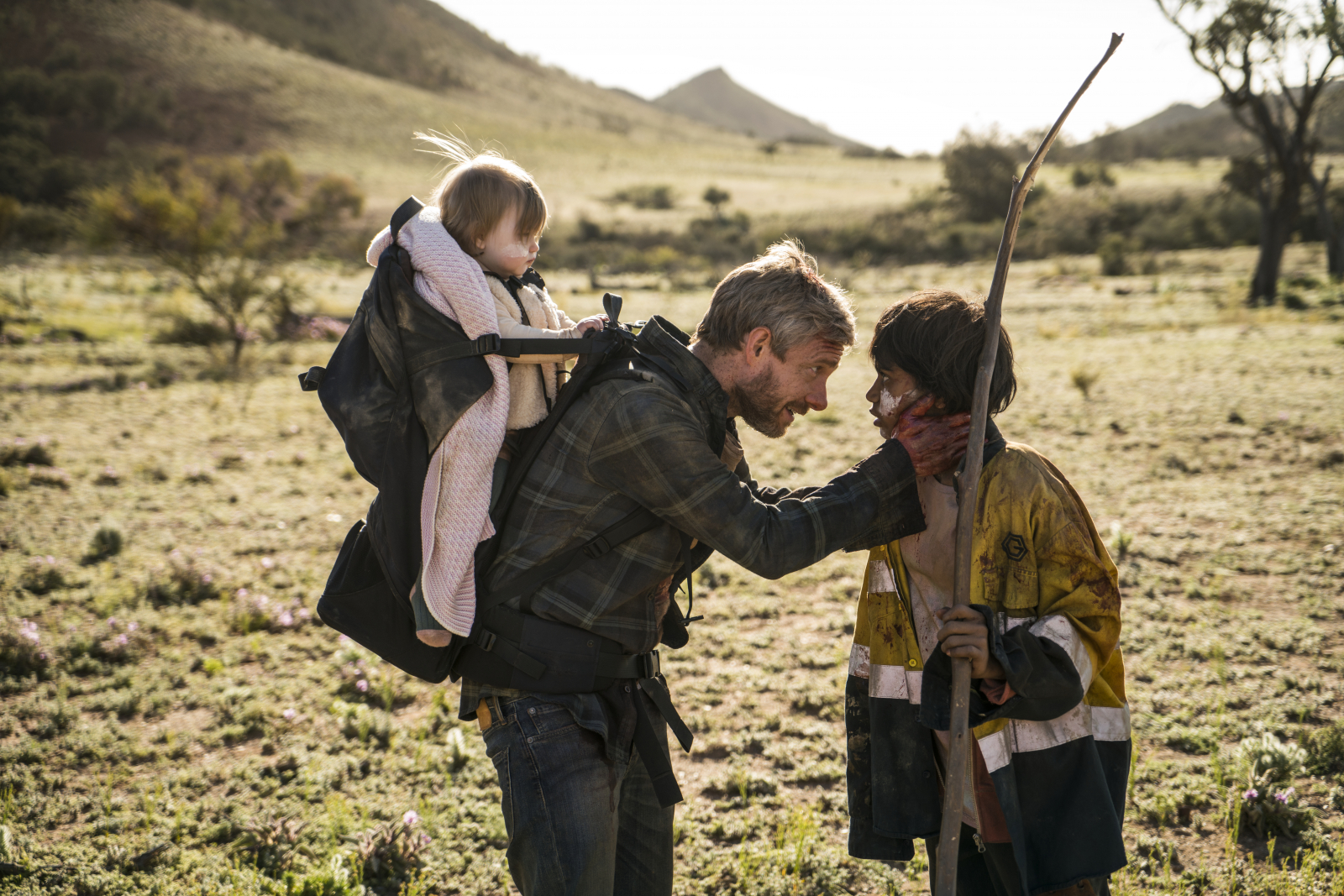
The situation is reversed for Thoomi (Simon Landers), an Aboriginal girl of twelve or thereabouts. She cares as best she can for her father, or at least the ravenous shell that remains after he succumbed. Thoomi feeds him… it?… small animals she’s hunted. She hides him from the watchful eyes of other Aboriginals, who stalk and burn the afflicted. Thoomi still holds out hope that “The Clever Man” (David Gulpilil from Walkabout) knows of a cure, if only she could find him.
What start off as two separate stories quickly become intertwined, as Andy and Thoomi aid each other in their quests. They do this not because circumstances demand it but because that’s who they are. With civilization reduced to tatters and survival in the already hostile Outback having become that much more grueling, the most powerful force remaining is the bond of family. As Cargo proves, family runs deeper than blood.
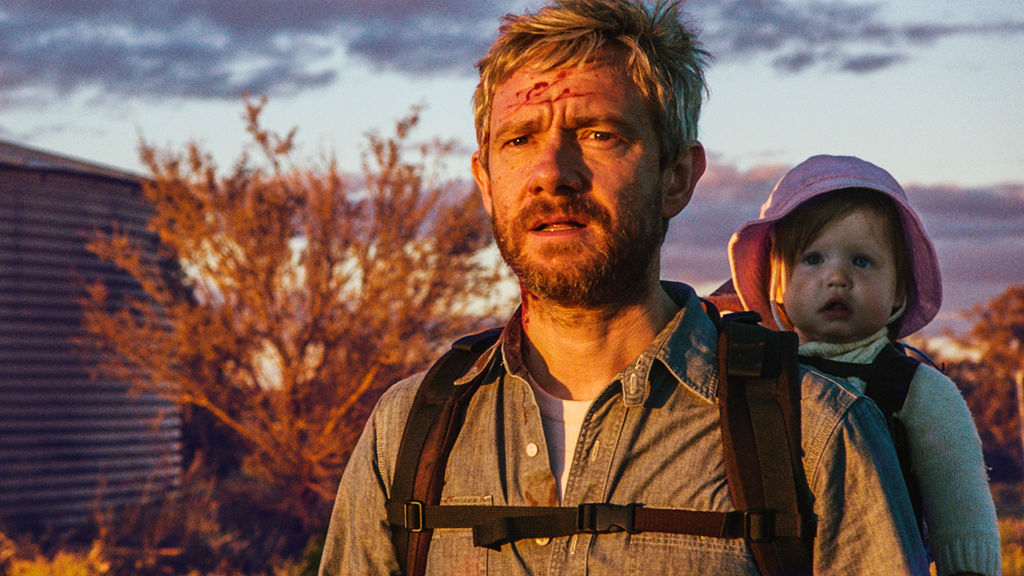
Cargo is not a zombie movie. I don’t mean that in the sense of, “Well, they don’t actually call them zombies.” Nor am I making some annoying distinction that these creatures are infected rather than undead. The film shrugs off many of the genre’s most familiar conventions, leading with the fact that we really don’t see all that much of these flesh-eaters. They’re not prone to leaping out from shadows. They don’t swarm in hordes dozens or hundreds strong. They don’t disembowl their prey, with geysers of blood spraying everywhere. The movie’s version of zombies more closely resemble animals one might actually encounter in the wild rather than monsters. Unless one catches the scent of blood, they’re content to be left alone, hibernating in dark tunnels or burying their heads in dirt.
Though the inevitability of a bitten victim turning is a staple of zombie cinema, Cargo approaches it differently. No switch suddenly flips from the living to the undead. This instead is a slow decline over the course of two full days (or sooner, depending on the severity of the injuries). This approach hits harder, as characters we’ve come to know well have their humanity chipped away, piece by piece, until nothing but blind hunger remains. They’re also realized with a more haunting visual marker than the usual pale makeup, sunken eyes, or exaggerated brow.
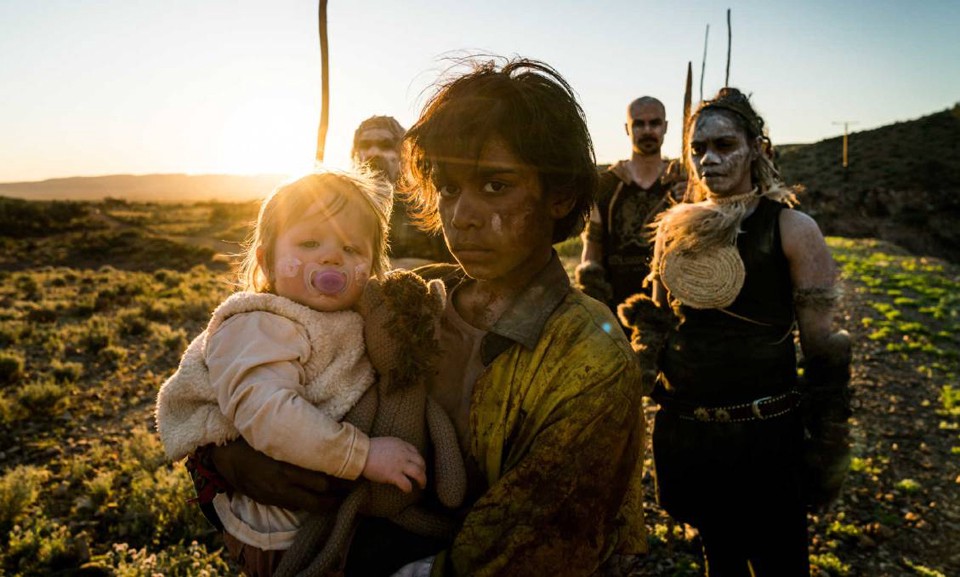
Cargo began life several years ago as a seven-minute short that hits at least some of the same key beats, and it’s been expanded to feature length while remaining lean and efficient. So many of these sorts of movies open with ominous narration over a montage of society’s downfall, with news cameras or cell phones capturing the earliest attacks from the zombie outbreak. Cargo sidesteps all that, having no interest in indicating how long this pandemic has had a chokehold on Australia, how many survivors remain, what the state of the government is, and what impact it’s had on a more global scale.
Everything we need to know is fished from the water. Early on in the film, Andy pulls a couple of government-issued containers from the river. Among the items inside is a timer that counts down 48 hours, to be triggered when someone is bitten. A pamphlet offers a visual indication – complete with cutesy line art – of how this contagion takes hold of its victims. Though this container and its contents are only on-screen for a moment, they speak volumes. The pandemic progressed slowly enough for these sorts of kits to be artfully designed, printed, and manufactured in presumably huge numbers. The hope for a cure has also been abandoned to the point that the Australian government is distributing implements of suicide. That is skillful storytelling.
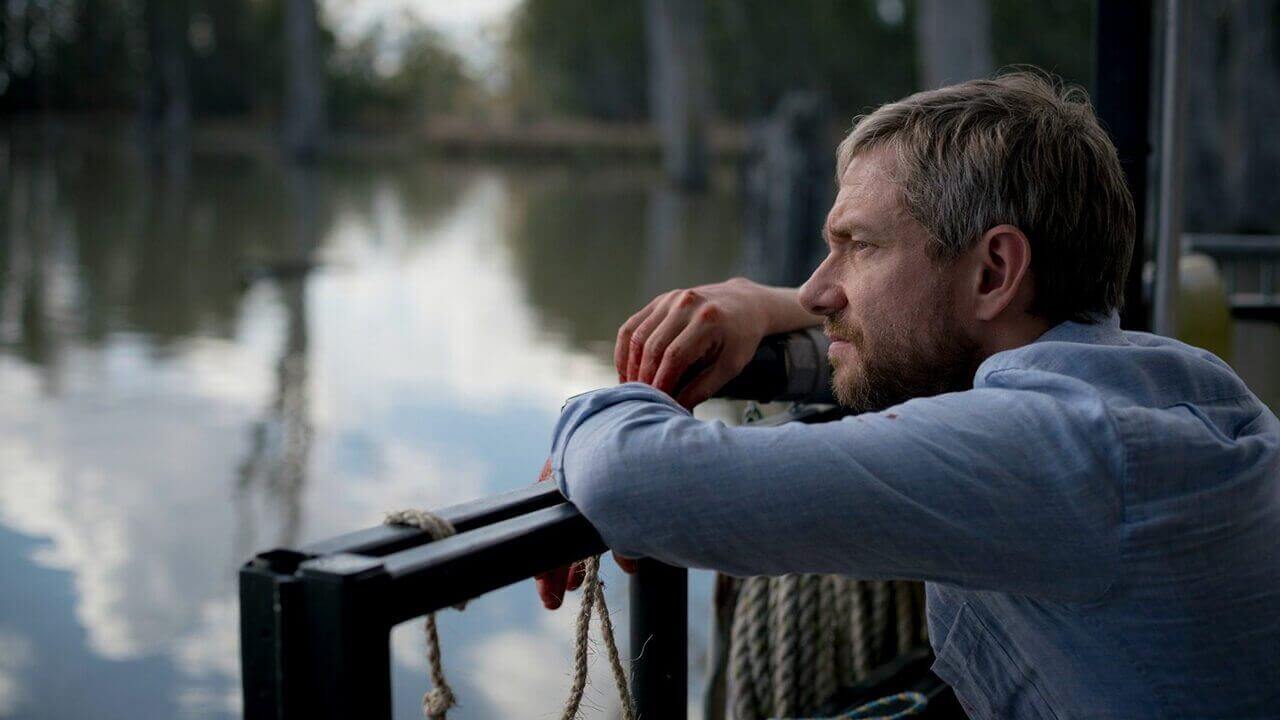
Cargo isn’t interested in ravenous ghouls suddenly darting into frame. Hard-earned tension replaces the usual jump scares. The fate of this child rests in what Andy is able to accomplish with depressingly few options and his time quickly running out. This approach admittedly limits what Cargo can accomplish as a horror movie. Despite very little gore, few attempts at scares, and “zombies” that rarely evoke menace or even feel like an immediate threat, Cargo still works. The emphasis on Andy and Kay’s characterization is critical to its success, and being realized by actors of the caliber of Martin Freeman and Susie Porter certainly doesn’t hurt either. Thoomi feels less realized as a character by comparison, and hers is the less urgent of the two journeys. Still, she’s brought to life by such a terrific actress that I can’t say I mind.
The movie also showcases an intriguing anti-colonialism message. It’s said that those Aborigines still connected to the Earth and their ways are faring better in this crisis than the civilized are. Fracking is portrayed as a hostile, ruinous, exploitative force, embodied by one survivor who offers salvation at a price that Andy can’t bear. Thankfully, Cargo doesn’t place Vic (Anthony Hayes) in the role of the film’s central villain or settle for a stale “Mankind is the real monster!” message.
That’s fitting. Cargo isn’t the story of a clearly defined nemesis being vanquished. Nor is it about monsters, figurative or literal. Cargo honors what makes life worth living. It’s about the bonds that connect us – about kindness and cooperation making us stronger, while self-interest and exploitation hasten our downfall. This is the sort of movie where I can acknowledge its flaws, but its strengths so far outweigh them that I can scarcely be bothered to notice. As emotionally resonant as I found Cargo to be already, I can’t imagine how much more devastating it’d be to watch if I were a father. While I have been disappointed in recent months that Netflix is backing away from the gloriously trashy movies I typically write about for this column, the presence of genre cinema as artful and affecting as Cargo goes a long way towards easing that sting.

